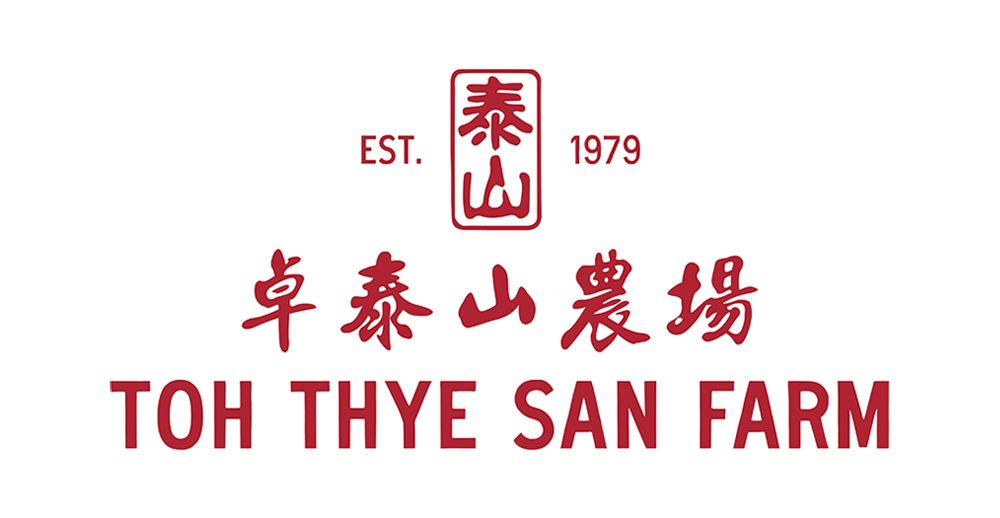With health concerns like diabetes, obesity, and heart disease on the rise, many are looking for ways to reduce their sugar intake without sacrificing flavor.
Natural sweeteners have become a popular alternative, offering a healthier way to add sweetness to foods and drinks. These alternatives help lower calorie and sugar consumption and often provide additional benefits, such as a lower glycemic impact or extra nutrients.
This blog explores 15 of the best natural sweeteners to replace refined sugar. From options that work well for baking to those perfect for sweetening your morning coffee, these alternatives fit various dietary needs and tastes.
Whether managing your blood sugar levels or simply looking to make healthier choices, natural sweeteners offer an excellent solution for keeping your meals and snacks tasty and nutritious. Let’s take a closer look!
Why Replace Sugar with Natural Sweeteners?
As awareness of the harmful effects of refined sugar on health continues to grow, more people are turning to natural sweeteners as healthier alternatives.
According to market reports, the global natural sweeteners market was valued at $24.7 billion in 2023, and it’s expected to grow significantly, with a compound annual growth rate (CAGR) of 6.2% from 2024 to 2033.
These natural alternatives, which include stevia, honey, and monk fruit, offer various health benefits, such as lower calorie content and additional nutrients. They are perfect for those who want to reduce sugar intake while enjoying sweetness.
Below, we’ll explore why replacing sugar with natural sweeteners is a good idea and cover the drawbacks of refined sugar.
Health Benefits of Natural Sweeteners
One of the primary reasons people turn to natural sweeteners is their lower glycemic index (GI). Many natural sweeteners, like stevia and monk fruit, have little to no effect on blood sugar levels, making them a safer choice for individuals managing conditions like diabetes.
This is a significant advantage over refined sugar, which causes rapid spikes in blood glucose. Additionally, many natural sweeteners, such as honey and maple syrup, contain small amounts of vitamins, minerals, and antioxidants that refined sugar lacks.
Natural sweeteners are also lower in calories, which can help with weight management. Stevia, for example, contains zero calories, while others, like coconut sugar, offer fewer calories than white sugar.
These benefits make them suitable for various diets, including keto, paleo, and vegan lifestyles. Many natural sweeteners are also plant-based, ensuring they meet the needs of those who avoid animal products.
The Drawbacks of Refined Sugar
When consumed in excess, refined sugar has been linked to many health issues. Studies show that high intake of refined sugar can contribute to weight gain, increased risk of diabetes, and even heart disease.
Consuming too much sugar also leads to dental problems, such as cavities and gum disease. Furthermore, sugar contributes to inflammation, increasing the risk of chronic conditions.
Globally, there’s a growing push to reduce sugar intake, with many health organizations advocating lower sugar consumption in diets. The World Health Organization (WHO) recommends that added sugars constitute less than 10% of total daily energy intake, with an ideal target of below 5% for better health outcomes.
This has led to the development of sugar reduction strategies and public health campaigns to curb the rise of sugar-related diseases.
For example, in Southeast Asia, Singapore has implemented several measures to reduce sugar consumption and improve public health. The Health Promotion Board (HPB) has launched the Healthier Ingredient Development Scheme (HIDS), which provides grants to companies developing healthier food ingredients, including lower-sugar products.
So, as more people become aware of the dangers of excessive sugar, replacing refined sugar with natural sweeteners is becoming a popular and healthier alternative.
The 15 Best Natural Sweeteners to Replace Sugar
Replacing refined sugar with natural sweeteners has become a popular trend among health-conscious individuals who want to reduce their sugar intake without sacrificing sweetness.
These sugar alternatives offer a healthier approach to satisfying your sweet tooth and various additional health benefits. Whether you’re aiming for weight management, better blood sugar control, or simply looking for a more natural way to sweeten your food, natural sweeteners are a great choice.
Below, we explore 15 of the best natural sweeteners, from sweet fruits to plant-based options, that can replace refined sugar in your daily routine.
1. Honey

Honey is a natural sweetener prized for centuries for its sweetness and wealth of health benefits. Unlike refined sugar, honey retains nutrients like antioxidants, which can help combat oxidative stress and reduce inflammation.
It is also rich in natural enzymes and offers antimicrobial properties, making it an excellent option for supporting the immune system.
Honey has a moderate glycemic index, so while it does contribute to blood sugar levels, it is generally considered a better alternative to refined sugar for those looking to maintain more stable glucose levels.
Uses:
Honey is versatile and can enhance the flavor of everything from tea to baked goods. It can also be used as a natural sweetener in marinades and salad dressings or as a drizzle over fruit or yogurt.
2. Maple Syrup

Maple syrup is more than just a sweet topping for pancakes; it’s a nutrient-rich option that can replace refined sugar in many dishes.
Derived from the sap of sugar maple trees, maple syrup has a lower glycemic index than sugar, making it a better choice for those with blood sugar concerns. It’s also packed with antioxidants that fight free radicals, helping protect your cells.
Additionally, maple syrup is an excellent source of minerals like manganese, zinc, and calcium. These nutrients affect bone health, immune function, and wound healing.
Uses:
Maple syrup is most commonly drizzled over pancakes or waffles, but it’s also a delicious addition to oatmeal, yogurt, and roasted vegetables. It can also be used in baking, adding a subtle caramel flavor to cakes, cookies, and muffins.
3. Coconut Sugar
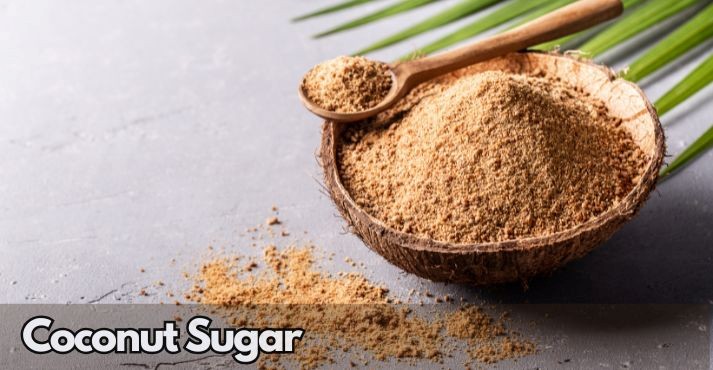
Coconut sugar, which comes from the sap of coconut palm trees, has a lower glycemic index than regular sugar, making it a more favorable option for people managing their blood sugar.
It retains many of the coconut’s nutrients, such as iron, zinc, and potassium. While its glycemic index is lower, it still provides a sweet taste and a slight caramel flavor, making it an appealing alternative in savory and sweet dishes.
Coconut sugar is also considered more sustainable than many other healthy sweeteners, as it requires less water.
Uses:
Coconut sugar is often used in coffee, baking, and smoothies. It can be substituted for brown sugar in most recipes, providing a deep, slightly caramel-like flavor to cookies, cakes, and sauces.
4. Stevia

Stevia is a naturally sweet plant-derived sweetener that has been used for centuries. Its biggest benefit is that it contains no calories and has little to no impact on blood sugar levels. This makes it a popular option for people with diabetes or those looking to reduce caloric intake.
Stevia also has antioxidant properties, helping to reduce oxidative stress in the body. While it’s much sweeter than sugar, a small amount is usually enough to provide a sweet flavor.
As demand for healthier alternatives rises, the stevia market has experienced significant growth, reflecting its increasing popularity worldwide. Major brands like Coca-Cola and PepsiCo are now use stevia in their drinks to meet the demand for natural, low-calorie options.
Uses:
Stevia is commonly used to sweeten beverages like tea and coffee without adding calories. It’s also great for smoothies, yogurt, and desserts like cookies or cakes. To balance flavors, stevia can even be used in savory dishes.
5. Date Syrup
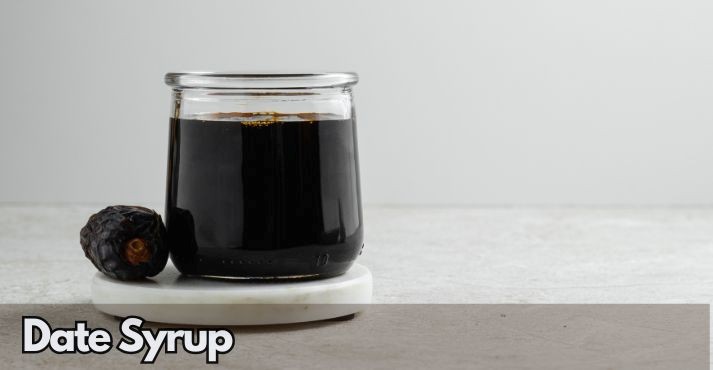
Date syrup is made by pressing the flesh of dates into a sweet, thick liquid packed with vitamins, minerals, and fiber. It’s a fantastic source of potassium, magnesium, and iron, all beneficial for good heart health.
Date syrup also offers a rich, complex flavor profile with caramel-like notes, making it ideal for various recipes. Additionally, it’s a great source of natural fiber, which supports digestion and helps you feel full.
Uses:
Date syrup works wonderfully in smoothies, salad dressings, and as a topping for pancakes or oatmeal. It can also be used in baking as a substitute for sugar in cakes, cookies, and energy bars.
6. Agave Nectar

Agave nectar, or agave syrup, is a sweetener derived from the sap of the agave plant. Its mild, neutral taste makes it a flexible substitute for refined sugar in recipes.
Agave is known for its low glycemic index, meaning it has a slower impact on blood sugar levels. This makes it suitable for individuals managing diabetes or blood sugar issues.
However, it’s high in fructose, so it should be consumed in moderation to avoid overloading the liver.
Uses:
Agave nectar is often used in cold beverages like iced tea or smoothies, where its mild sweetness dissolves easily. It can also be drizzled over yogurt or fruit, or baked goods.
7. Monk Fruit Sweetener
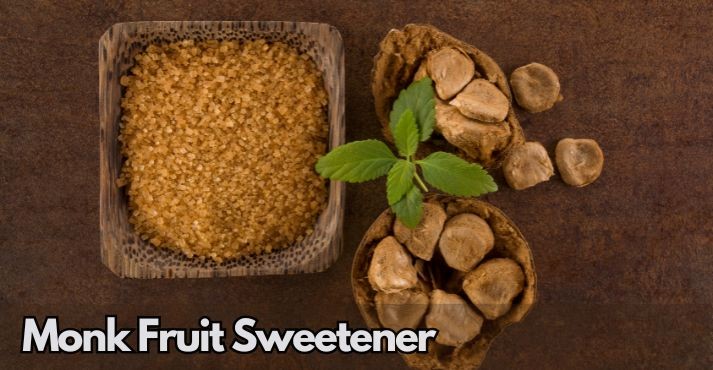
Monk fruit sweetener is derived from the monk fruit, a small round fruit native to Southeast Asia. It is a zero-calorie sweetener, making it an attractive option for those on low-calorie or weight management diets.
Monk fruit contains antioxidants, such as mogrosides, which can help protect cells from oxidative damage. Unlike zero-calorie sweeteners, monk fruit doesn’t have a bitter aftertaste, making it a popular choice for cooking and baking.
Monk fruit sweeteners are especially known in the Asia Pacific region, which made up 47.1% of global revenues in 2023. This rise reflects the region’s increasing focus on healthier diets and the growing concern over health issues like diabetes and obesity.
Uses:
Monk fruit sweetener can be used to sweeten beverages, including tea and coffee, as well as in sauces and baked goods. It works well in recipes that require a sugar substitute with no aftertaste.
It’s an ideal option for people who are looking for a healthier sweetener without the impact of common food additives.
8. Molasses
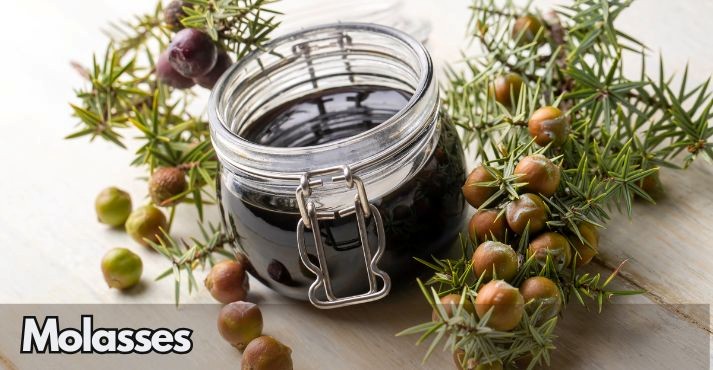
Molasses is the byproduct of refining sugar from sugar cane or sugar beets. It is thick, dark, and packed with nutrients, including iron, calcium, and magnesium, which help maintain strong bones and support metabolic functions.
Molasses also contains antioxidants, making it a better choice for overall health than refined sugar. Its strong, slightly bitter flavor can give depth to many dishes, especially baked goods.
Uses:
Molasses is a staple in gingerbread, cookies, and barbecue sauces. It can also sweeten baked beans or be incorporated into savory marinades.
9. Brown Rice Syrup
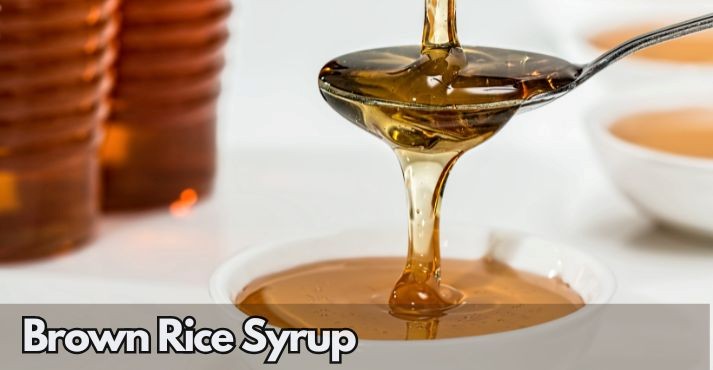
Brown rice syrup is a mild, lightly sweetened syrup from fermented brown rice. Though it has a high glycemic index compared to other natural sweeteners, it is still preferable to refined sugar.
It’s also vegan, which makes it suitable for plant-based diets. Brown rice syrup is often used in granola bars, energy bars, and other snacks.
Uses:
Brown rice syrup can be used in baking, especially in recipes for energy bars, muffins, and granola. It also adds a pleasant sweetness to oatmeal, smoothies, and dairy-free desserts.
10. Palm Sugar
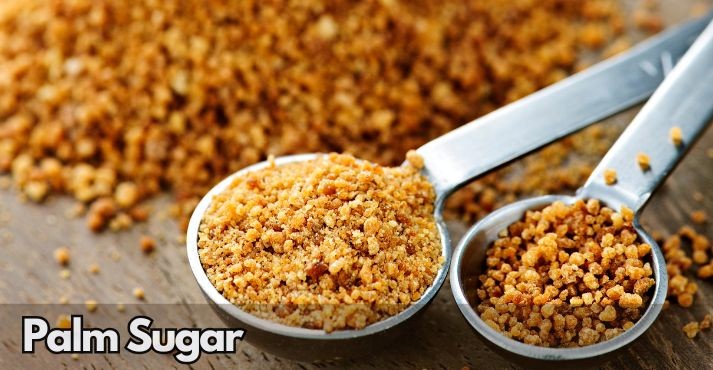
Palm sugar is made from the sap of the sugar palm tree and has been used in Southeast Asia for centuries. It has a rich, earthy flavor and is lower on the glycemic index than refined sugar, making it a better option for those concerned with blood sugar management.
Palm sugar is also packed with minerals such as iron, potassium, and magnesium, which can support heart health and overall well-being.
Uses:
Palm sugar is perfect for adding to Southeast Asian dishes such as curries, stir-fries, and sauces. It can also be used in desserts, especially deep, rich flavors.
11. Fruit Juices (e.g., Apple, Orange)
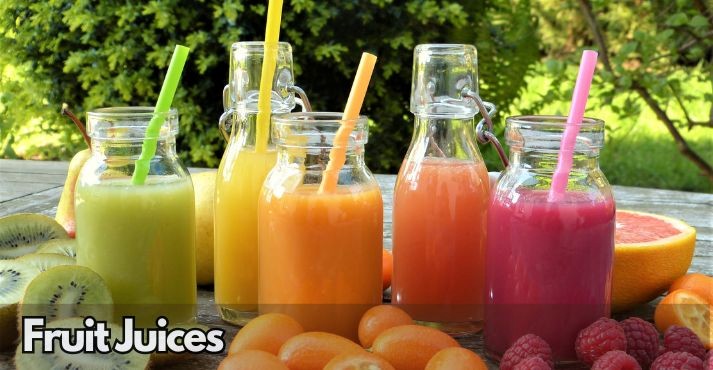
Natural fruit juices are a simple and healthy alternative to refined sugar. They are rich in vitamins and antioxidants and offer natural sweetness without the refined sugars and empty calories in traditional sweeteners.
Fresh fruit juices, like apple or orange juice, can provide essential nutrients such as vitamin C and potassium.
Interestingly, the fruit juice market in Asia-Pacific is booming. Countries like China and Malaysia are showing impressive growth, with Malaysia predicted to lead the charge.
In fact, it’s forecasted to grow at a rate of 5.77% annually between 2024 and 2030. This shows that people are opting for juices over sugar substitutes and shifting towards healthier beverage choices.
Uses:
Fruit juices offer a naturally sweet touch, making them perfect for adding flavor to everything from smoothies and baked goods to savory marinades and dressings. They bring a burst of freshness to sauces and beverages, providing a healthier alternative to processed sugars.
12. Yacon Syrup
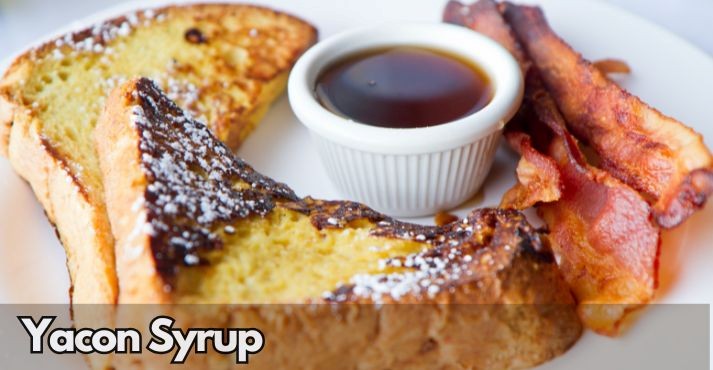
Yacon syrup is extracted from the yacon plant’s roots, which is native to the Andes mountains in South America. It is low in calories and has a low glycemic index, making it perfect for people managing their blood sugar.
Yacon syrup is also rich in prebiotics, which help promote healthy gut bacteria and improve digestion.
Uses: Yacon syrup can be added to yogurt, oatmeal, smoothies, or even baking. Its mild sweetness and prebiotic benefits make it a top contender for a healthy sugar substitute.
13. Erythritol
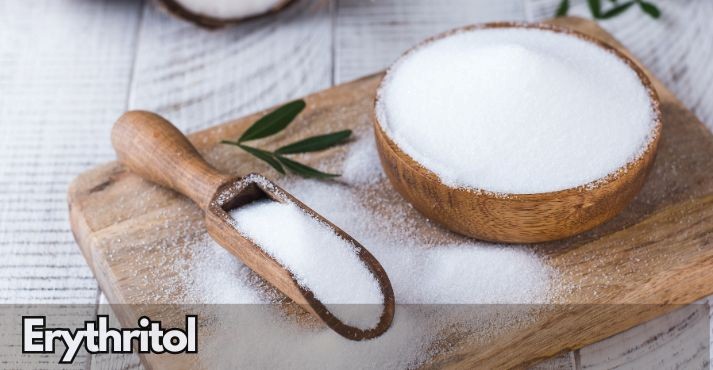
Erythritol is a sugar alcohol naturally found in fruits like grapes, melons, and pears. It’s low in calories and safe for teeth, making it a good choice for dental health.
It also has no effect on blood sugar levels, making it beneficial for individuals with diabetes or those following low-carb diets.
Studies show that erythritol is well-tolerated by most people, and it doesn’t have the gastrointestinal issues that some other sugar alcohols cause.
It provides a sweet taste without the added calories or harmful effects of sugar, making it a popular choice for people looking to reduce sugar consumption without compromising on flavor.
Uses:
Erythritol is ideal for sugar-free baking, sweetening beverages, or adding to low-carb desserts like cookies, cakes, and ice cream. It’s also commonly used in beverages like tea or smoothies.
14. Barley Malt Syrup
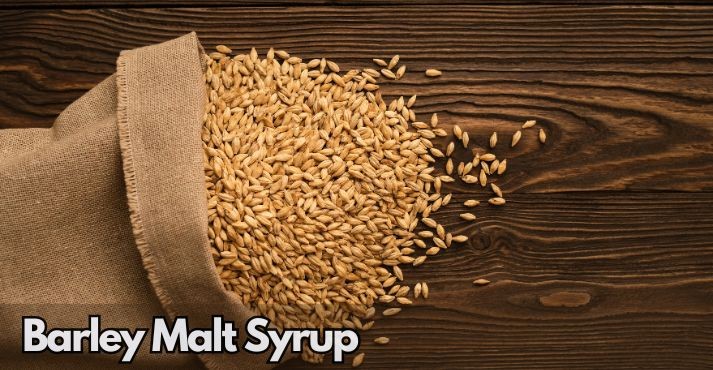
Barley malt syrup is derived from sprouted barley and has a rich, nutty flavor. It’s less sweet than refined sugar, and its mild flavor makes it ideal for savory dishes and baked goods.
Additionally, barley malt syrup provides small amounts of vitamins and minerals, including B vitamins and magnesium.
It is becoming increasingly popular in Southeast Asia, where it is used as a natural sweetener in various types of dishes.
Uses:
Barley malt syrup is perfect for sweetening bread, cereals, and granola. It can also be used in baked goods like cookies or muffins to add complexity to the flavor.
15. Fresh Fruits (e.g., Bananas, Dates)
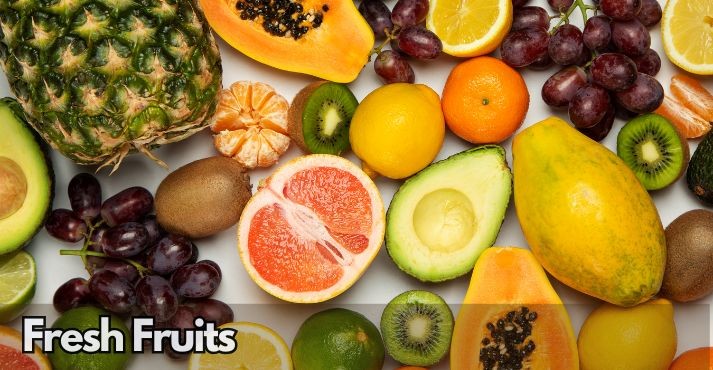
Fresh fruits like bananas and dates are some of the most natural and nutrient-dense sweeteners available. Packed with vitamins, minerals, and fiber, they provide natural sweetness and essential nutrients like potassium, vitamin C, and antioxidants.
Fresh fruits can be used as a whole-food alternative to sugar, providing a naturally sweet flavor and added health benefits.
Uses:
Bananas and dates can be used in smoothies and baked goods, or eaten on their own as snacks. These natural foods also make an excellent base for energy bars or desserts.
These natural sweeteners offer a variety of flavors and health benefits. Whether you’re aiming to cut down on sugar or prefer a healthier, tastier option, they are nutritious and simple to include in your meals.
How to Choose the Right Natural Sweetener
Choosing the right natural sweetener can be difficult since each one has its own flavor, benefits, and use in different recipes. For selecting the best option, you should know your dietary goals, taste preferences, and cooking needs.
1. Taste Profile
Natural sweeteners have different flavors that can transform your dishes. Honey and maple syrup add rich, complex notes, perfect for both sweet and savory meals. For example, honey complements tea, while maple syrup enhances oatmeal or roasted veggies.
Stevia provides an intensely sweet flavor with zero calories, making it a great addition to coffee or smoothies.
When choosing a sweetener, it’s important to match it with your recipe. For instance, molasses offers a bold flavor for gingerbread, while date syrup adds a light fruity sweetness to yogurt or smoothies.
2. Dietary Restrictions
When selecting a sweetener, consider your dietary needs. For keto or low-carb diets, options like stevia, monk fruit, and erythritol are excellent choices because they have minimal impact on blood sugar levels.
Those following vegan diets can also enjoy a variety of options, including maple syrup, agave nectar, and coconut sugar. For people with diabetes, low-glycemic options such as stevia, monk fruit, and yacon syrup are often recommended, as they won’t spike blood sugar levels.
As health trends in the beverage sector as well as food continue to evolve, choosing the right sweetener is crucial to maintaining a balanced diet. It’s important to be mindful of how each sweetener fits into your specific nutritional plan to ensure it meets your dietary goals.
3. Cooking or Baking
Not all sweeteners are created equal when it comes to cooking or baking. Some, like honey and maple syrup, perform well in high-heat recipes, adding flavor and moisture to baked goods.
However, others, like stevia and monk fruit, may lose their sweetness when exposed to heat, making them better suited for no-bake recipes or as a finishing touch.
If you’re making baked goods and need a sugar replacement that behaves similarly to regular sugar, coconut sugar and erythritol are great choices, as they both tolerate heat well and provide a similar texture to traditional sugar.
When experimenting in the kitchen, consider the heat tolerance and texture of the sweetener to achieve the best results in your dishes.
Conclusion
Natural sweeteners offer various health benefits that refined sugars cannot provide. Many, like honey, maple syrup, and monk fruit, have a lower glycemic index, which means they cause a slower rise in blood sugar levels.
Additionally, these alternatives to refined sugar often contain antioxidants, vitamins, and minerals, which can add a nutritional boost to your daily intake.
Apart from health benefits, natural sweeteners can be used in a wide range of cooking and baking recipes. They let you to experiment with different flavors that complement various dishes and beverages.
The growing trend of healthy indulgence has increased the demand for these sweeteners, allowing you to enjoy sweetness without sacrificing your health.
Whether you’re following a specific diet, such as keto, vegan, or low-sugar, choosing the right natural sweetener ensures you can enjoy the sweetness you love while supporting your wellness goals.





















